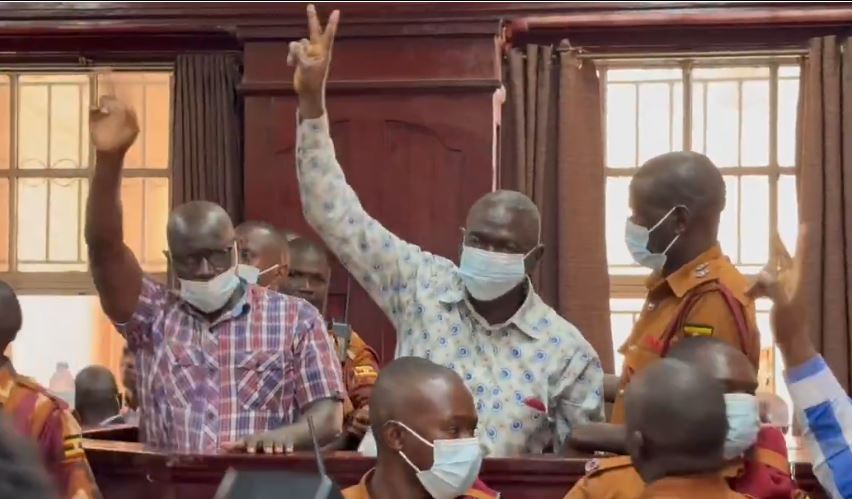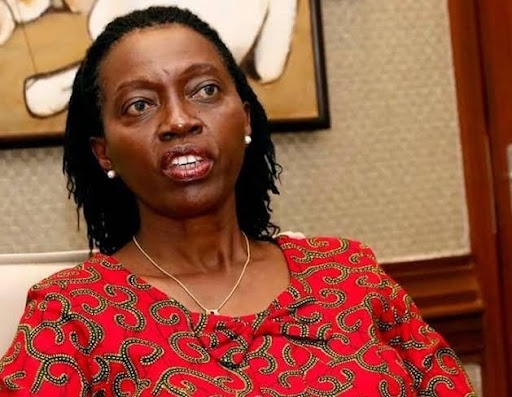

Supporters of Uganda Opposition politician Kizza Besigye burst into songs and chants after the High Court declined to grant him bail, citing the grave nature of the charges and concerns of case interference.
The supporters who eagerly awaited the ruling that would have seen the veteran leader secure his release through bail were left disappointed after presiding Judge Rosette Comfort Kania ruled otherwise.
Soon after the judge finished reading the ruling, the supporters who had filled the courtroom burst into song, with Besigye and his co-accused joining in before they were escorted back to prison.
“We shall overcome, we shall overcome, I believe we shall overcome someday,” the supporters sang in unison, while raising their hands in solidarity with the opposition leader.
The court found that the applicants, Kizza Besigye and his aide Hajj Obeid Lutale, had satisfied all the necessary requirements for bail and the sureties presented by Besigye.
The judge, however, denied the bail application, attributing the decision to the grave nature of the charges and ongoing investigations.
“The offences are alleged to have been committed in various locations in Uganda and in other countries, requiring more time and resources to conclude investigations than is normally the case in offences alleged to have been committed only in Uganda,” he ruled in a court decision read out by registrar Ssalmu Ngoobi.
“Owing to the fact that the investigations are ongoing the interest of Justice at this point dictate that the application for bail is denied on this occasion because there is the likelihood that the applicants if released on bail while investigations are ongoing owing to the grave nature of the offence may fall prey to the temptation to interfere with the investigations.”
Besigye was arrested in Nairobi on November 16, 2024 and ended up in a military court in Uganda.
Following the controversy, the Supreme Court ruled that his case be transferred from a military tribunal to a civilian court, where he faces charges of treason.
The leader later filed for bail in a hearing that was meant to compel the court to release him.
He argued that his arrest was politically motivated, adding that he was facing persecution for defending the constitution and championing the rights of the citizens.
Treason is a capital offence in Uganda, and if found guilty, the 68-year-old could be sentenced to death.







